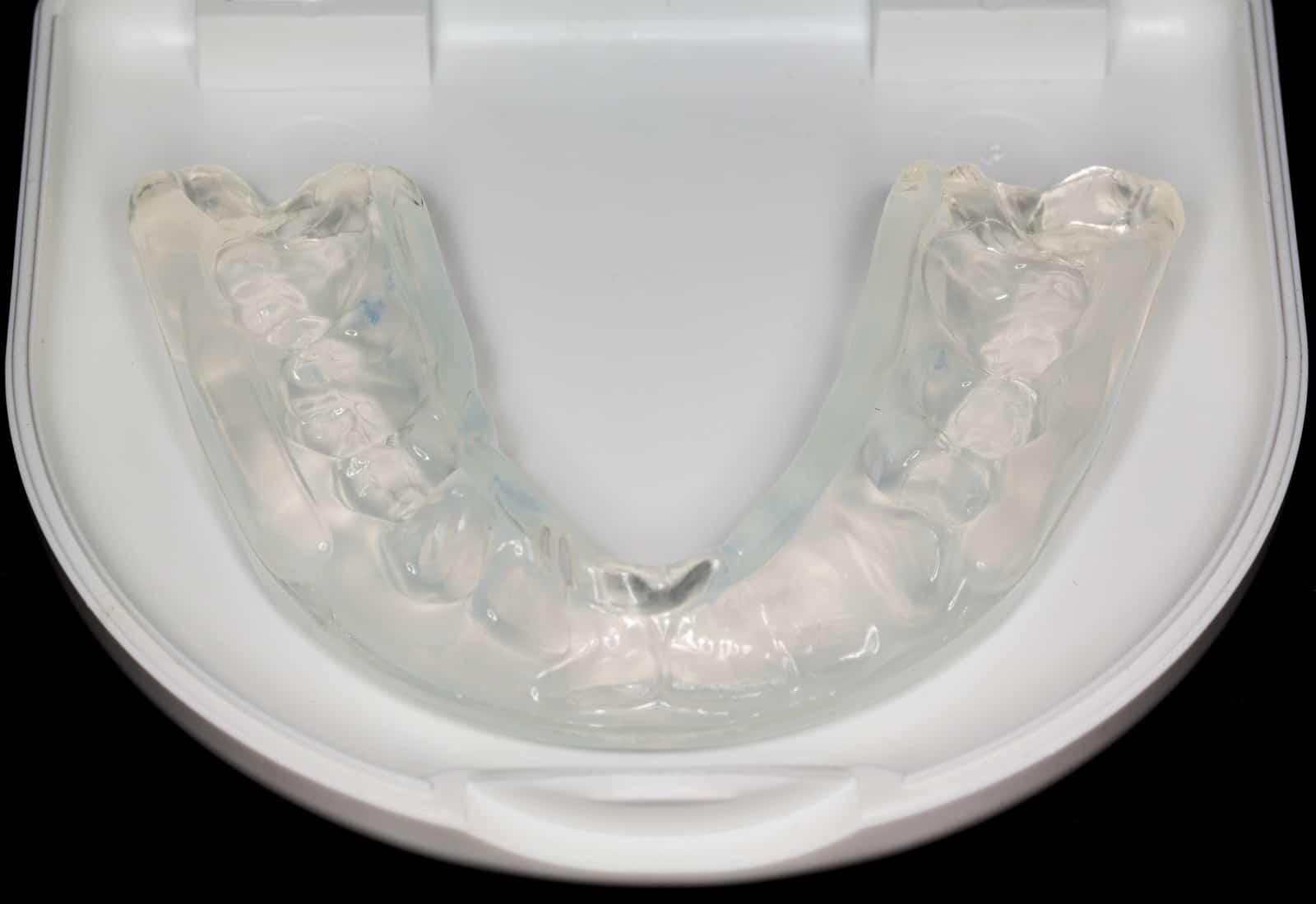Teeth grinding or bruxism is a very common occurrence that can have many unwanted consequences. People do this while they’re asleep, completely unintentional, and then they wake up with a sore jaw, feeling like they didn’t get enough rest, and in a general state of discomfort.
However, the consequences of teeth grinding go beyond discomfort. This can lead to deterioration of the enamel of your teeth, which in turn will make you more prone to tooth decay and overall damage. This can lead to the development of cavities and other serious conditions. Furthermore, an association between teeth grinding and dental fractures, migraines, and gum recession have been observed.
Also, if you’re worried about aesthetics, you should know that there might be yellowing of your teeth if you suffer from bruxism. Lastly, bruxism can also cause temporomandibular joint disorder or TMD, which can have severe consequences for your health and quality of life.
What to do about it?
For many years, mouth guards have been proposed as the solution to bruxism. While they might work for many people, this is not an absolute truth. One of the things to keep in mind before you get mouth guards in NE Calgary is that they’re treating the symptom but not the underlying cause. Many different things can be leading you to have bruxism. Some of these are:
• Stress, anxiety, and depression. These mental health issues have been associated with bruxism. Stress is an often-cited cause, but we shouldn’t leave other mental ailments aside when considering this problem. A therapist, relaxation exercises, and other resources might be of use in this case.
• Alcohol, nicotine, and other drugs. It has been observed that the use of these substances can lead to an increased frequency of bruxism.
• Occlusion issues. When the upper jaw doesn’t align with the lower jaw, you might find that this poor occlusion leads to bruxism. This is when an orthodontist in NE Calgary might help more than a night guard.
• Genetic predisposition.
• Chronic neurological diseases.
• Sleep apnea. This is one of the most significant cases in which the solution is to treat sleep apnea instead of the use of mouth guards. Given sleep apnea’s association with many other –and serious- diseases, it becomes even more important to treat this cause at its core.
As you can see, many of these causes can be managed in different ways. From going to an orthodontist near you to booking an appointment with a therapist. While a mouth guard is a definite solution for some people, such as patients with a genetic predisposition, others might benefit from a combination of the use of mouth guards and something else. In some cases, getting mouth guards in NE Calgary is a temporary solution while the underlying issues are solved.
Furthermore, if talking about chronic neurological diseases or sleep apnea, it’s important that you visit a doctor. If you have Parkinson’s disease, which can be one cause of bruxism, then certain drugs such as muscle relaxants might be prescribed.
The bottom line: Do night guards work?
The definite answer is that yes, mouth guards work to prevent further damage to your teeth and protect them from the extreme force they endure all night long when it comes to patients with bruxism. That said, it’s important to try to determine the underlying cause that might be at the base of this problem. That way, if this cause is treated and resolved, you might be able to skip the night guard. Also, you’ll be taking an integral approach to your health. This is one of those many cases in which your overall physical and mental health can affect your dental health significantly.

